1. Kittens Are Born Blind—But Their Whiskers Know Everything

iStock
Newborn kittens are blind and deaf, relying entirely on touch and smell to navigate the world. But here’s the kicker: their whiskers act like mini sensory radars, picking up subtle changes in air currents and nearby objects. These whiskers are so sensitive they can detect whether they’ll fit through tight spaces. Imagine being completely clueless visually but still managing to explore your world like a tiny furry ninja. That’s your kitten for the first week of its life—stealthy, whiskered, and adorable.
2. They Sleep 18 Hours a Day to Fuel Their Chaos
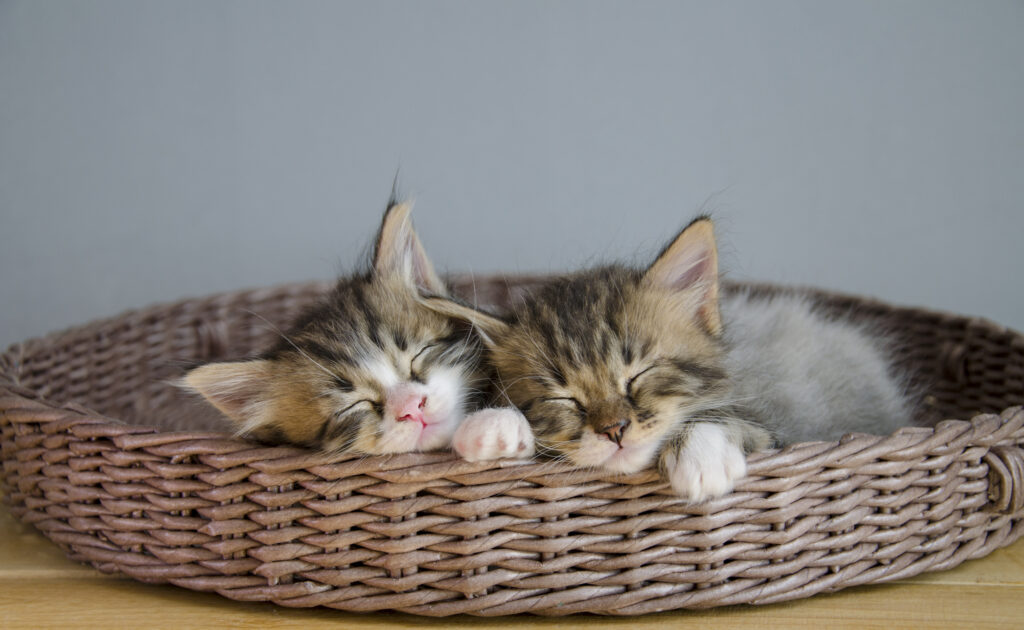
iStock
If you’ve ever wondered why kittens nap so much, it’s not just laziness—they’re growing at an astonishing rate. During sleep, their bodies release growth hormones that turn them from palm-sized fuzzballs into full-fledged feline dynamos. But don’t let those long naps fool you. That seemingly peaceful kitten is just recharging for another round of furniture-climbing, toe-attacking, and midnight zoomies. Pro tip: enjoy the quiet moments because their energy comes back with a vengeance.
3. Their Purring Isn’t Always About Happiness
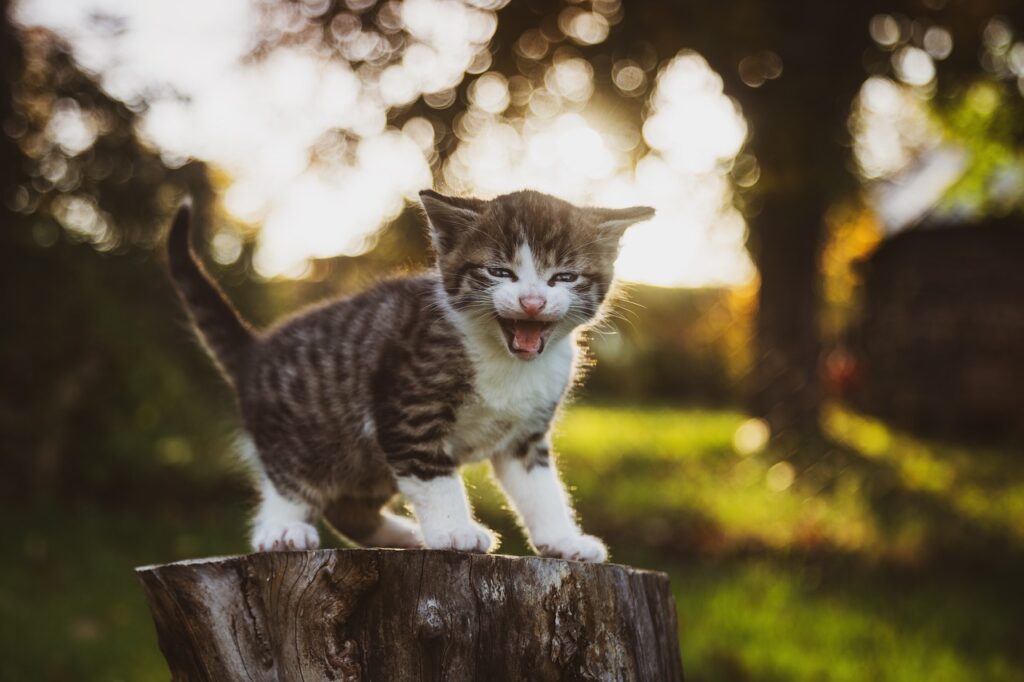
Pixabay
You hear a purr and think, “Aw, my kitten is so happy!” But hold on—it’s not always about joy. Kittens also purr when they’re scared, stressed, or trying to comfort themselves. It’s a built-in healing mechanism, as the low-frequency vibrations can even help repair tissue and relieve pain. So next time your kitten purrs while at the vet, it might be saying, “I’m fine…but also a little terrified.” Their purr is multitasking like the overachiever it is.
4. Kittens Can “Meow” in Your Accent
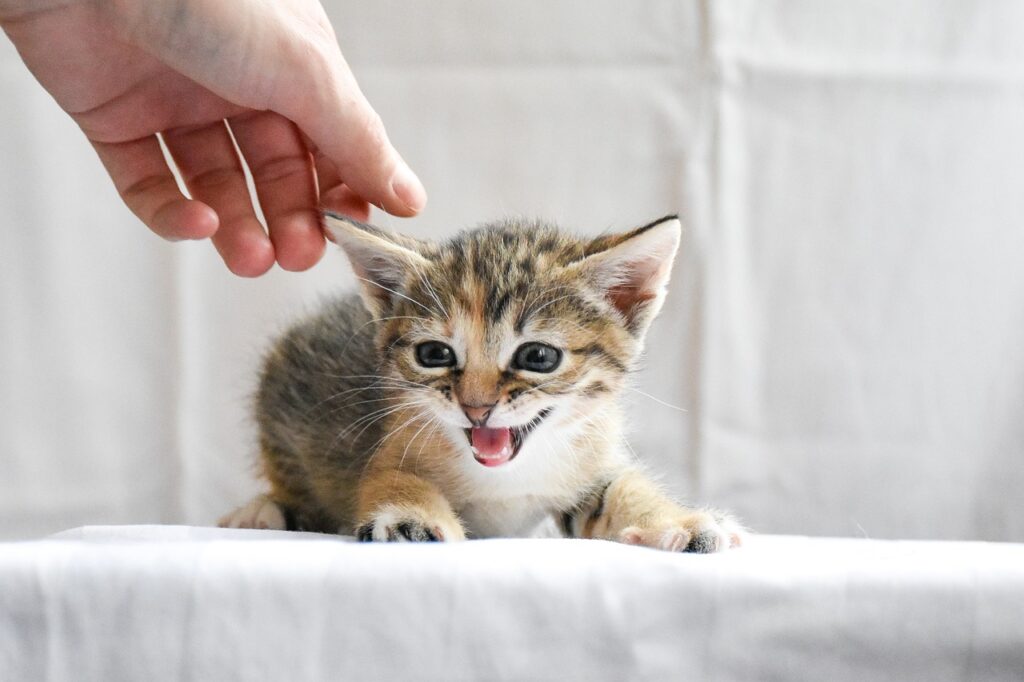
Yes, your kitten might be bilingual—or at least mimicking you. Studies show cats adjust their vocalizations based on their human companions, meaning your kitten’s meows could reflect your tone and speech patterns. If you’re soft-spoken, expect delicate little mews. If you’re loud or animated, don’t be surprised if your kitten has a flair for drama. This ability to “speak human” is a survival tactic they’ve perfected over centuries, making them the ultimate furry linguists.
5. Milk Is a No-Go After Weaning
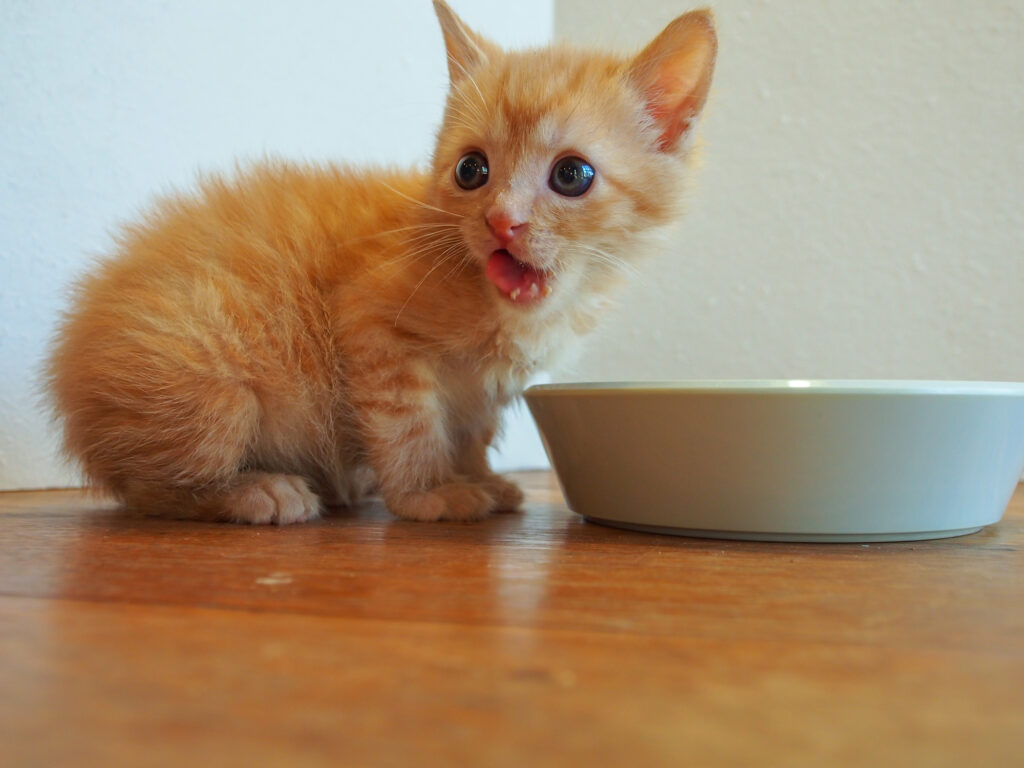
iStock
The idea of kittens lapping up milk is a myth that refuses to die. While they rely on their mother’s milk in the early weeks, most kittens become lactose intolerant after weaning. Giving them milk could upset their stomachs, leading to unpleasant cleanup for you. Instead, offer specially formulated kitten milk or water. And let’s face it: they’re more interested in chasing your shoelaces than in dairy anyway.
6. Their Vision Includes UV Light

iStock
Kittens don’t just see the world; they see beyond it. Their eyes can pick up ultraviolet light, revealing patterns and details invisible to humans. This superpower helps them spot hidden prey or markings in nature. In your home, it might explain why they’re fascinated by seemingly blank walls or shiny surfaces. Basically, your kitten lives in a glowing, secret universe, and you’re stuck in boring old HD.
7. They’re Born with Blue Eyes That Might Change
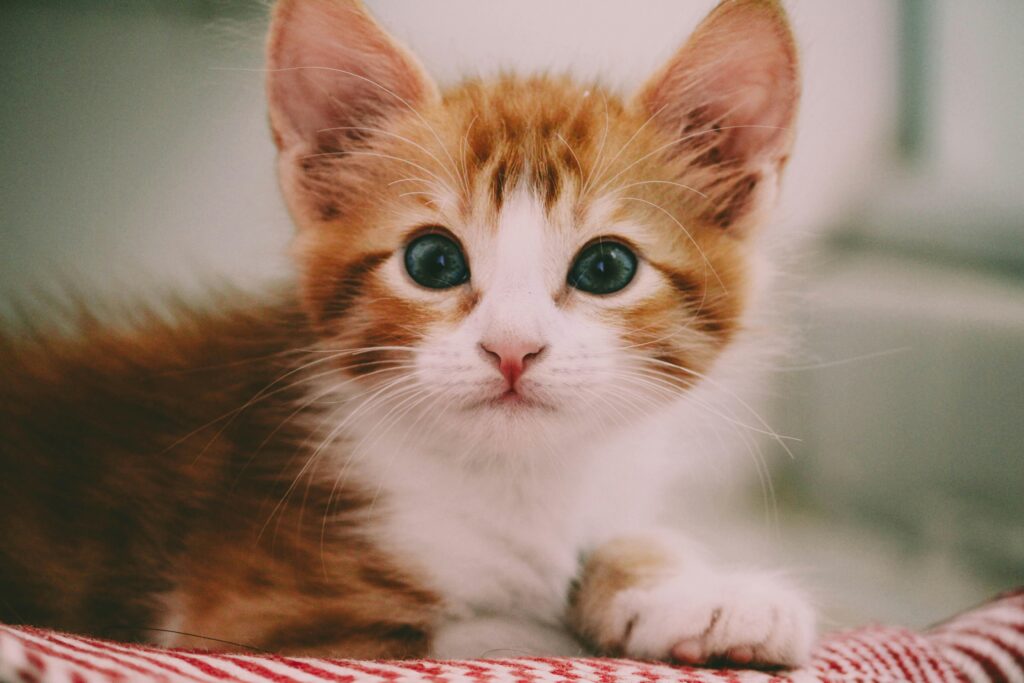
Pixabay
All kittens are born with mesmerizing blue eyes, but the color isn’t permanent. By three months old, their eyes could shift to green, gold, amber, or even copper, depending on their genetics. That baby blue phase is fleeting, so cherish those sapphire gazes while you can. Fun fact: some breeds, like Siamese cats, keep their striking blue eyes for life, making them feline royalty.
8. Kitten Ears Work Like Radar Dishes
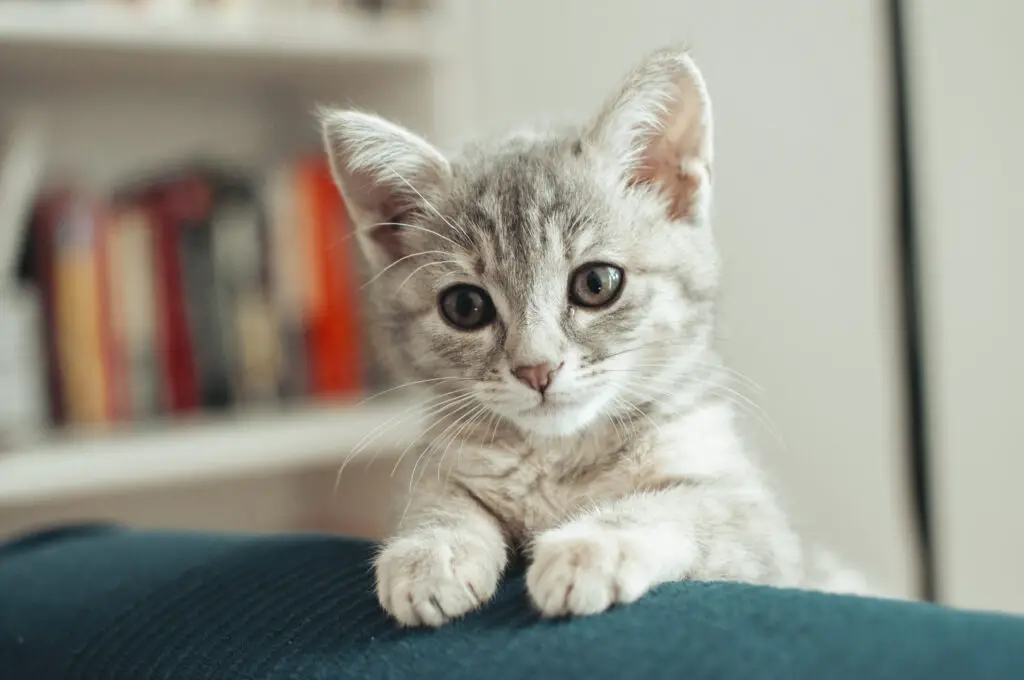
iStock
Kittens are born with floppy ears, but within days, those tiny satellites perk up and start swiveling like radar dishes. Their ears can rotate 180 degrees to pick up the faintest sounds, like the crinkle of a treat bag or the soft squeak of a toy. It’s this incredible hearing that makes them such stealthy hunters—even if their current prey is just your dangling earring.
9. They’re Expert Manipulators from Day One
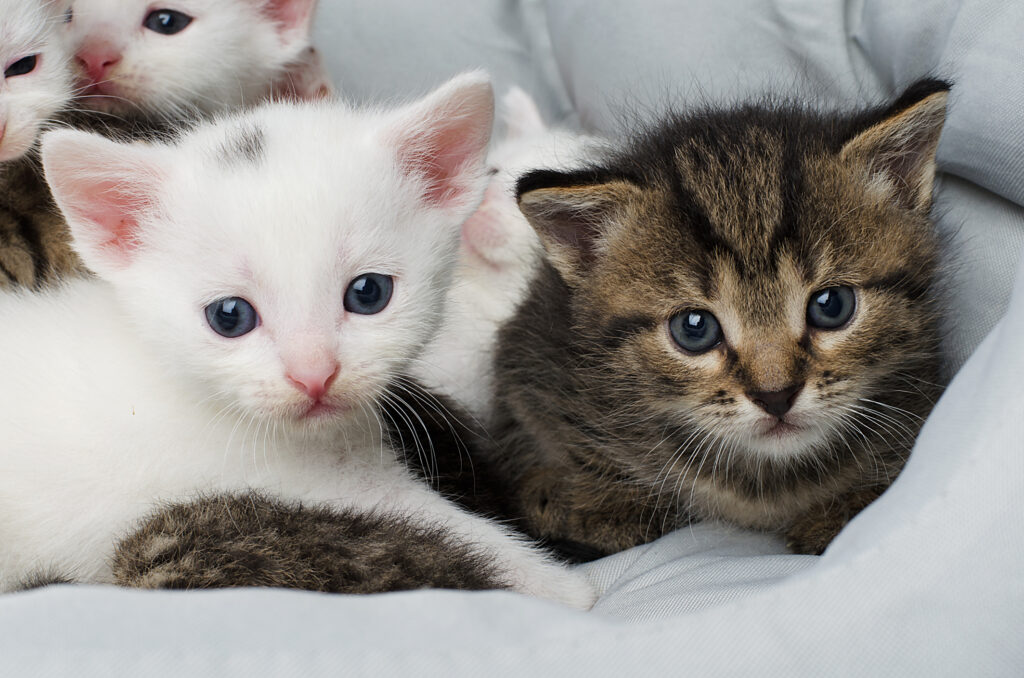
iStock
Think those big, soulful eyes are just adorable? Think again. Kittens have evolved to exploit human nurturing instincts, triggering our “aww” response to ensure they get food, shelter, and love. Scientists call this the “baby schema” effect, where certain features—like big eyes and tiny noses—make us helplessly doting. Your kitten isn’t just cute; it’s a pint-sized mastermind, using its adorableness to bend you to its will.
10. Their Tiny Paws Are Surprisingly Scented
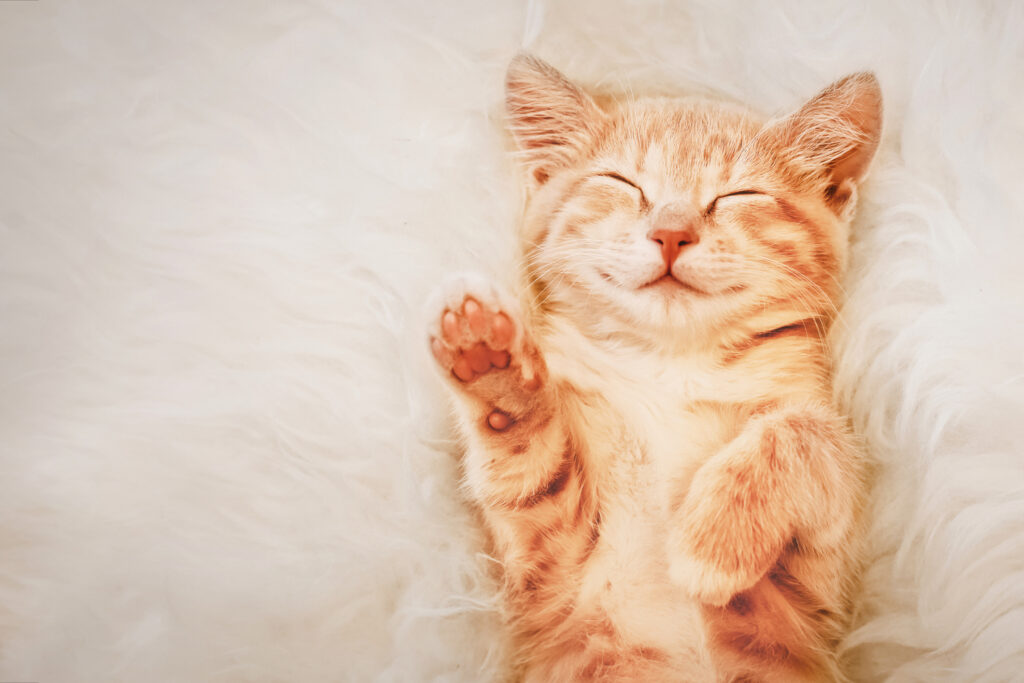
iStock
Every step your kitten takes leaves a tiny scented “stamp” behind. Kittens sweat through their paw pads, and this subtle scent is their way of marking territory—even if that territory is your couch. Those precious toe beans are more than cute; they’re tools of feline diplomacy and ownership. So, yes, your kitten has officially claimed your lap, your bed, and pretty much your entire life.
11. Kittens Have a “Murder Button” Reflex

iStock
If you’ve ever scruffed a kitten and seen it go limp, you’ve activated its “murder button”—a natural reflex designed to help its mother carry it safely. This response is a survival mechanism, ensuring kittens stay still while being transported. It’s not aggression or submission—it’s biology at its most adorable. Just don’t overuse it; kittens need to grow confident in their independence.
12. They Can Pounce Before They Can Walk Properly
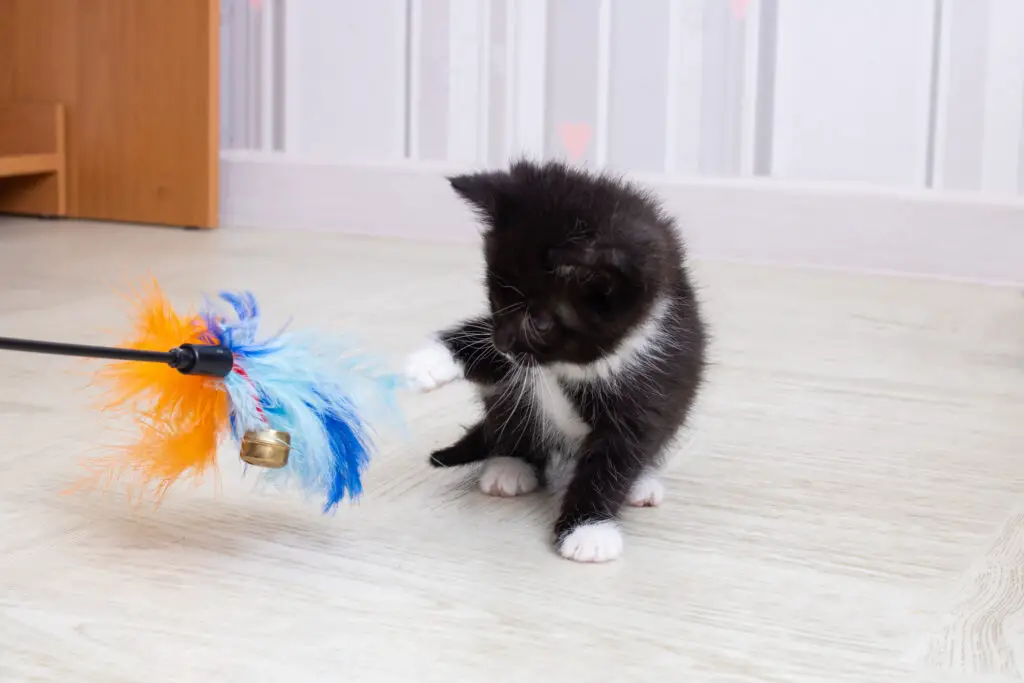
iStock
Kittens might stumble when they walk, but they master the art of pouncing almost immediately. Even at just a few weeks old, they’re practicing their signature move: the sneak-and-pounce. This behavior is hardwired into their DNA, preparing them for a life of hunting—even if the “prey” is a feather on a stick. Watching a kitten pounce on nothing and miss is both hilarious and a reminder of their unstoppable determination.


